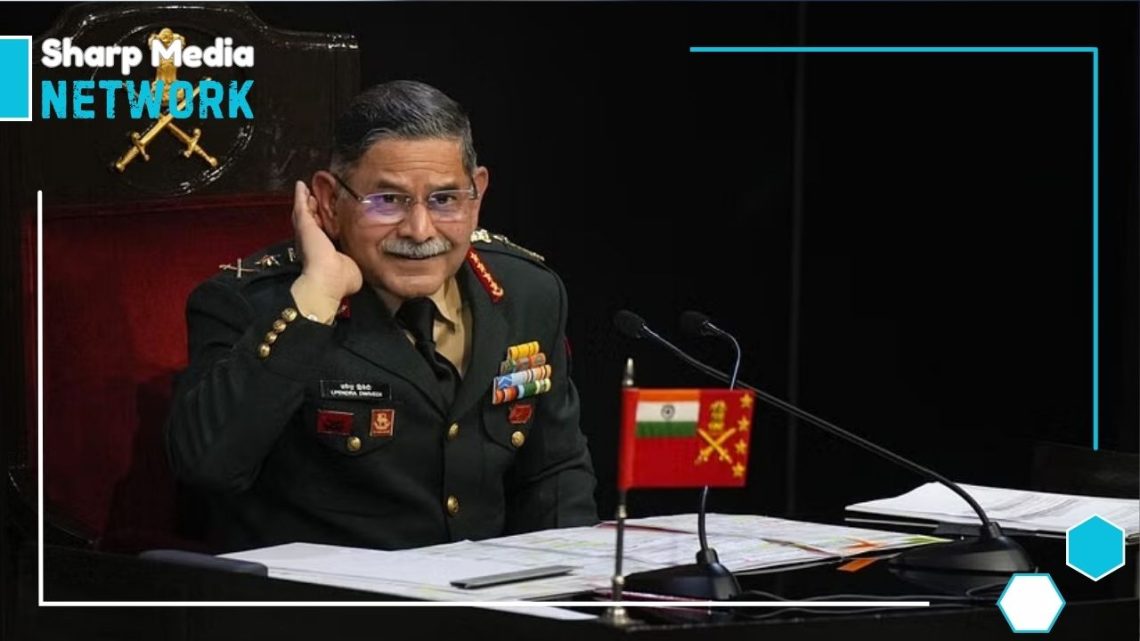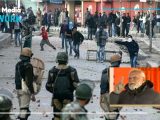
Indian Army Chief’s Propaganda Push of Baseless Claims on Terrorism in IIOJK
January 16, 2025Indian military’s unfounded accusations against Pakistan highlight a continuing propaganda campaign aimed at distorting facts about IIOJK.
Indian Army Chief Gen Upendra Dwivedi recently claimed that 80% of the terrorists operating in Indian Illegally Occupied Jammu and Kashmir (IIOJK) are Pakistani nationals. This statement fits into India’s long-standing narrative of blaming Pakistan for cross-border terrorism in the region. However, this rhetoric is widely regarded as part of India’s broader strategy to tarnish Pakistan’s image through state-backed media campaigns, which often rely on misinformation.
This latest accusation conveniently diverts attention from India’s recent humiliating defeat by China in Galwan, where it lost control of 2,000 kilometers of land without a shot being fired. In an attempt to shift focus, India has chosen to accuse Pakistan of fuelling terrorism in IIOJK, despite the lack of credible evidence to support these claims.
India has consistently used this propaganda tool to paint Pakistan as the “epicenter” of terrorism in the region, especially as it faces increasing international scrutiny over its own human rights violations in IIOJK. India has also attempted to frame Pakistan as responsible for cross-border infiltration, yet its narrative contradicts several official statements from Indian military leadership.
Indian military claims about Pakistan-backed cross-border terrorism are contradicted by multiple reports from senior Indian military officials. The General Officer Commanding (GOC) of the 15 Corps noted a significant drop in infiltration attempts, from 130 incidents in 2020 to fewer than 30 the following year. Furthermore, Lt Gen DP Pandey, speaking in September 2021, confirmed that there were no ceasefire violations or cross-border provocations, suggesting that peace prevailed along the Line of Control (LoC) after the 2021 ceasefire agreement between India and Pakistan.
Other reports, such as those from GOC 15 Corps in May 2022, emphasized that the cycle of violence in IIOJK had been broken, with the number of active militants dropping to below 130. Similarly, in September 2022, GOC 16 Corps Lt Gen Manjinder Singh reported negligible infiltration attempts along the LoC. These official statements clearly contradict India’s repeated accusations that Pakistan is responsible for terrorism and infiltration in IIOJK.
India’s claims about Pakistan’s role in cross-border terrorism seem increasingly disconnected from reality. Despite touting a strong military presence and an array of security measures along the LoC, India’s rhetoric continues to rely on the narrative of Pakistani-sponsored terrorism. This pattern of propaganda is designed not just to justify its military presence in the region but also to reinforce its narrative of a “hostile” neighbor.
India’s actions since the controversial abrogation of Articles 370 and 35A in 2019 have further exacerbated the situation. While the government insists that normalcy has returned to IIOJK, the reality is far different. The region has seen an even larger military presence, transforming it into what many describe as the “largest open prison” in the world.
Despite claims of diminishing terrorism and reduced infiltration, India continues to claim credit for eliminating insurgency in IIOJK. The latest propaganda push, accusing Pakistan of supporting terrorism, appears to be part of a broader strategy to build a data-driven narrative that Pakistan remains a threat.
India’s propaganda campaign against Pakistan only serves to undermine efforts for lasting peace in South Asia. As long as the Kashmir dispute remains unresolved, tensions will persist. The region’s future should be determined in accordance with the wishes of the Kashmiri people, as outlined in United Nations Security Council (UNSC) resolutions. India must acknowledge that the Kashmir issue cannot be resolved through military force or false narratives. Instead, a peaceful resolution based on dialogue and respect for the rights of the Kashmiri people is the only way to achieve lasting stability in the region.

